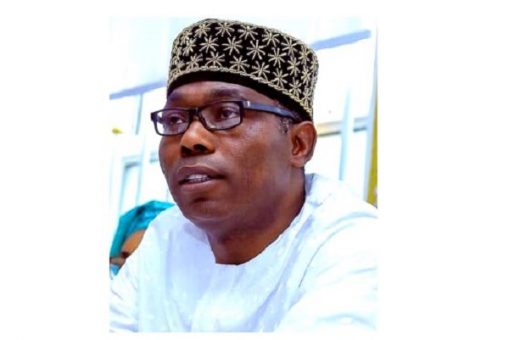Former presidential candidate of the Social Democratic Party (SDP), Prince Adewole Adebayo, has raised concerns about the economic management under President Bola Tinubu’s administration. In a recent interview with DAILY POST, Adebayo described the economic team as “uncoordinated” and suffering from what he termed “economic illiteracy.”
Adebayo’s criticism centres on the government’s handling of the country’s economic challenges, especially the recent increase in external borrowing. He pointed to the Finance Minister’s statement that Nigeria’s economy was performing well despite the rising debt, which he found problematic.
“It’s not a good day when the finance minister believes that borrowing money overseas is a good day for the country,” Adebayo said. He went on to question the logic of taking loans from foreign markets, especially when Nigeria had the potential to generate capital internally. “How can it be a good day when Nigeria goes overseas to give investments in the capital market from the excess production that we have?” he asked.
The former presidential candidate compared Nigeria’s borrowing practices to those of advanced economies like the United States. While acknowledging that countries like America borrow, Adebayo explained that borrowing in one’s own currency was fundamentally different from borrowing in foreign currencies. “America borrows from within, they borrow from their own currency. But borrowing foreign currencies, such as Euro bonds, is a sign of crisis,” he stated.
Adebayo also warned against celebrating borrowing as a positive achievement. “If you are anaemic and your neighbour comes to donate blood to you, you should be grateful, but you don’t say that’s the best day of your life,” he said. According to Adebayo, the government needs to focus on generating domestic capital instead of relying on external loans.
Uncoordinated Economic Policies
One of Adebayo’s key criticisms was the lack of coordination within the Tinubu government. He argued that the economic team was not working together efficiently. “Even though he is supposed to be the coordinator of the economy, he is not coordinated,” Adebayo said.
He highlighted the government’s unrealistic exchange rate policies as a major flaw in their approach to economic management. “The exchange rate they fixed is unrealistic,” he noted, adding that the government’s failure to meet basic economic parameters revealed a deeper issue of economic illiteracy.
In Adebayo’s view, the government’s target of 15 percent inflation is inherently flawed. “Any basic micro-economist knows that you must never have double-digit inflation,” he stated. He explained that high inflation rates inevitably lead to higher unemployment, making the government’s policies contradictory and unsustainable.
Despite his criticisms, Adebayo expressed a desire for the administration to succeed. “I want them to succeed. I want investors to come to Nigeria. I plead with anyone to have confidence in the economy of Nigeria,” he said. However, he warned that the contradictions in the government’s approach would eventually prove themselves.
Critique of Social Programmes and Unemployment Solutions
Adebayo also questioned the government’s handling of social programmes, particularly the plans to distribute funds to 25 million households. He found it illogical to provide financial aid to households without addressing the country’s high unemployment rate. “Why don’t you have 25 million households from whom you are going to give employment? So, you have a social register for people you want to give money but you don’t have a register of unemployed people that you can give jobs to. What sense does it make?” he asked.
He also dismissed the government’s approach to supporting small and medium-sized enterprises (SMEs). “If you say you want to grow the economy by bringing investors, don’t you realise that borrowing money in the bank is just one of the factors of production?” Adebayo said, highlighting that loan capital alone would not solve the country’s economic problems without addressing other factors like infrastructure costs and labour costs.
Issues with Economic Housekeeping
Adebayo further criticised the government’s fiscal management, saying that it was flawed from the beginning. “You can never say to anybody, especially somebody that understands basic microeconomics, that your inflation rates cannot be lower than your unemployment rate,” he explained. According to Adebayo, the government’s failure to address this basic economic principle would have dire consequences for the country’s future.
He suggested that the government’s economic policies were sending the wrong signals to both local and international investors. “The government is not sending the right signals. The way they are going about their fiscal and budgetary policies is wrong,” Adebayo remarked.
Adebayo’s Vision for Nigeria’s Political Leadership
Aside from his economic criticisms, Adebayo also shared his thoughts on Nigeria’s political leadership. He advocated for a rotational presidency that would not only consider regional balance but also promote intergenerational and ideological shifts in leadership. He believes that it is essential to rotate leadership not just between the North and South but also from the older, traditional political elites to the younger generation with fresh ideas.
“If you rotate intergenerationally from the old people to the young ones and ideologically from those who follow the International Monetary Fund (IMF)-World Bank to those who have indigenous ideas, you would have some progress for the country,” Adebayo explained.

